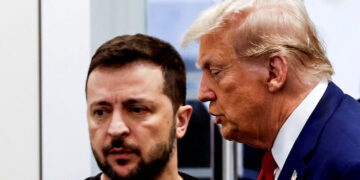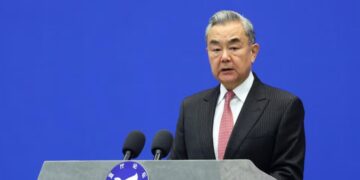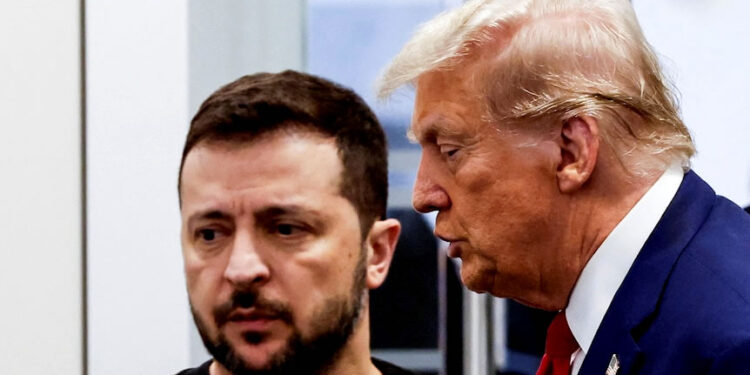In a July 4 phone call, U.S. President Donald Trump reportedly urged Ukrainian leader Volodymyr Zelensky to launch long-range attacks on Moscow and St. Petersburg. He said this would make Russians feel the pain and force Vladimir Putin to negotiate, according to a Washington Post report by journalist David Ignatius.
During the call, Trump made a provocative ask, saying, “Volodymyr, can you hit Moscow and can you hit St. Petersburg too?” Zelensky responded that they absolutely could if the United States supplied the weapons. The weapons under discussion reportedly included Tomahawk cruise missiles, which are capable of striking deep inside Russia, though Washington has held back for now.
Trump’s push for escalation stems from several motives. He believes Putin has shown disrespect by ignoring ceasefire calls while feigning interest in peace talks. He is convinced that military leverage works, inspired by the success of U.S. strikes on Iran. Trump describes his approach as escalate to de-escalate, a strategy to pressure Moscow into negotiations by raising the stakes.
The risks are considerable. Trump refused to define how far he would go if Putin retaliated, saying simply, “Don’t ask me that, I just want to settle the war.” While Patriot systems are being sent to Ukraine, the deadlier Tomahawks remain shelved for now.
Globally, this stance creates serious dilemmas. Ukraine has long sought longer-range arms but risks provoking Russian nuclear threats if it deploys them. NATO allies fear uncontrolled escalation could drag the West deeper into the conflict.



































